EMELINE FOURMENT
COLONIA Y LA CUESTIÓN DE LAS VIOLENCIAS SEXUALES
[¿Alemania se ha vuelto de pronto un país “feminista”? En este texto, Emeline Fourment aborda el tratamiento público de las agresiones sexuales en Colonia, examinando el precario reconocimiento jurídico de las violencias sexuales en este país, antes de poner de relieve los puntos ciegos de los discursos dominantes sobre el tema, condiciones necesarias para expresar un discurso feminista digno de tal nombre. Contretemps]
“Nada de esto ocurre en Alemania, las mujeres y los hombres son iguales en derechos. Aquí no hay violencia sexual, no sólo no pertenece a nuestra cultura, sino que tampoco tiene lugar en nuestro Estado de derecho, en nuestra democracia […] Aquí en Alemania, en Europa, no hay sitio para eso y las personas que viven aquí deben atenerse a esta regla”/1
Eva Högel, diputada del SPD (Partido Social-Demócrata Alemán), el 7 de enero de 2015, en la radio Deutschland Funk.
Introducción
Apenas la policía anunció haber registrado más de un centenar de denuncias por agresiones sexuales durante la noche de fin de año ante la estación de Colonia, por hombres “de origen norte-africano”, se oyeron ya los primeros comentarios racistas. Las y los militantes antiinmigrantes e islamófobos de Pegida se lanzaron a tope: ya lo habían anunciado, los emigrantes “violan, roban y destruyen el país”; lo ocurrido en Colonia sería “el primer pogromo desde 1945”, y la única solución a esta catástrofe sería la expulsión de los emigrantes fuera de Alemania/2… Desde entonces se han podido observar dos fenómenos. En primer lugar, el número de denuncias presentadas ante la policía no ha dejado de aumentar. Según las últimas cifras, alcanzarían las 766, de las cuales 381 por agresiones sexuales, en lo que se refiere a Colonia/3. Habría 31 presuntos culpables: nueve argelinos, ocho marroquíes, cinco iraníes, cuatro sirios, un iraquí, un serbio, dos estadounidenses y dos alemanes/4. Se han presentado otras denuncias en otras ciudades, sobre todo en Hamburgo. Como subraya Sabine Hark, este rápido aumento de denuncias es un hecho inédito: ninguna de las acciones feministas llevadas a cabo contra las violencias a las mujeres había llevado a una presentación tan masiva de denuncias en toda la historia alemana/5. Esta vez se ha creído a las víctimas, lo que no es ajeno al segundo fenómeno observable desde el comienzo de la polémica, la racialización del debate. El hecho de que los agresores sean identificados como “de origen norte-africano” ha jugado a favor de la credibilidad de las víctimas; lo que ha interesado a los comentaristas ha sido menos el hecho de que mujeres hayan sido víctimas de violencias sexuales que el hecho de que hombres no blancos pudieran ser criminales sexuales. El conjunto de los participantes del debate político ha aceptado así el encuadre racista iniciado por Pegida. Parece que es imposible hablar de violencias sexuales sin hablar de inmigración, de integración o de Islam.
Después, como por arte de magia, en menos de pocas horas, Alemania se ha convertido en la avanzadilla de la igualdad mujeres-hombres. Quienes hace tres años ponían un gesto escéptico ante la campaña en twiter #aufschrei [grito de cólera] contra el sexismo cotidiano y las violencias sexuales, los mismos y las mismas que reprochaban a las feministas que exageraban cuando se indignaban por los comentarios sexistas de Rainer Brüderle (FDP, Partido Liberal) por el escote de una periodista, se han vuelto hoy fervientes defensores de los derechos de las mujeres. No hay que asombrarse por tanto al ver a Brigit Kelle escandalizada por la agresiones de Colonia, a pesar de que en 2013 publicara un libro titulado “¡Abróchate la blusa! Un grito contra la locura de la igualdad”/6 en el que se dedicaba a responsabilizar a las víctimas del acoso sexual de lo que habían sufrido.
En este contexto de un racismo cada vez más desacomplejado, acompañado de una aparente legitimación de los combates feministas, todo hace creer que (anti-)sexismo y (anti-)racismo operan el uno en contra del otro. En este artículo sin embargo se quiere mostrar cómo, sobre todo cuando se trata de violencias sexistas, estos dos sistemas de opresión se acomodan muy bien el uno con el otro, o más exactamente se refuerzan entre sí. Aunque la acusación de crimen sexual es históricamente una de las características del argumentario racista contra los hombres no blancos, es falso creer que las feministas tengan nada que ganar con este tipo de discursos, ni siquiera cuando son blancas: la reafirmación de los “mitos sobre la violación” (Schwendiger, 1974; Brownmiller, 1975; Süssenbach, 2001) va en contra de la lucha contra todas las violencias sexuales.
En vez de comenzar analizando el ascenso del racismo, como hace la mayor parte de los comentaristas de izquierdas sobre este tema, propongo partir aquí de los hechos de origen: las agresiones sexuales. Voy a esforzarme en relacionar los discursos políticos actuales sobre las agresiones de Colonia con las discusiones, más antiguas, sobre el reconocimiento jurídico de las violencias sexuales en Alemania. En un primer momento, intentaré demostrar cómo Alemania no puede ser considerado en ningún caso un país “feminista”. Después abordaré la manera como, frente a la presencia de hombres refugiados, y por medio de un discurso racista y securitario, van a adoptarse seguramente medidas que parecen dar la razón a las feministas. Mostraré cómo estas medidas se enraízan en un discurso a la vez sexista y racista, que exige una reformulación del discurso feminista, y la afirmación de una solidaridad con las inaudibles y olvidadas en este debate: las mujeres refugiadas.
Las violencias sexuales en Alemania: un reconocimiento jurídico precario
El § 177 del código penal alemán sobre la sexuelle Nötigung (coacción sexual) es objeto de movilizaciones feministas desde los años 1970. Aunque pocas veces está en el centro de la actualidad, se observa una multiplicación de artículos sobre este tema desde el 1 de enero de 2016. Y con razón: resulta que, en su estado actual, la ley no permite castigar las agresiones sexuales de Colonia/7.
En la actualidad, y sólo desde 1997, el § 177 reconoce culpable de sexuelle Nötigunga a cualquier persona “que obligue a otra persona a realizar actos sexuales 1) por medio de la violencia 2) por amenaza que implique, en ese momento, un peligro para la vida o el cuerpo 3) por la utilización de una situación en que la víctima es expuesta “sin defensa” a la acción del agresor”. La violación, definida por la imposición de una penetración, es considerada como un caso agravado de sexuelle Nötigung. En Francia, la violación es definida de esta manera: “Todo acto de penetración sexual, de la naturaleza que sea, cometido sobre una persona por otra por violencia, coacción, amenaza o sorpresa, es una violación” (art. 222-23 del Código Penal). Esta definición no es mucho menos restrictiva, pero al contrario que el derecho alemán, reconoce la violación “por sorpresa”.
El § 177 plantea muchos problemas. Implica una presunción de consentimiento para la víctima, que deberá probar: bien que ha habido violencia distinta de la sexual, lo que supone que las violencias han dejado huellas considerables; bien que la amenaza de que ha sido objeto ponía verdaderamente, en el momento de la agresión, a la víctima en peligro, lo que excluye todas las amenazas económicas, el chantaje afectivo o incluso el hecho de que el agresor haya sido violento antes y que la víctima tema que lo sea de nuevo; o bien que la víctima no podía defenderse. En este último caso, por ejemplo, un hombre que había impuesto una relación sexual anal a su mujer, que la había rechazado de forma explícita, no fue reconocido culpable de violación, ya que la mujer no había opuesto resistencia por miedo a despertar a los niños que dormían en la habitación contigua (BGH, 2012). La Corte Suprema Federal no reconoció el caso como una “situación en la que la víctima es expuesta “sin defensa” a la acción del agresor”, dado que ella habría podido pedir ayuda o, al menos, forcejear.
Dicho claramente, la regla del “no es no” no está reconocida por el derecho penal alemán; son las resistencias de las víctimas y no los actos del agresor lo que permiten definir lo que es una violación. No basta con que la víctima haya manifestado su no consentimiento, también debe defenderse. En cambio, el simple hecho de que no haya dicho “no” puede bastar para convertir a un agresor en inocente/8. Así, en 1999, la Corte Suprema Federal se planteó la cuestión de si un violador no había simplemente “malinterpretado” el consentimiento de la víctima en el siguiente caso: ésta había sido encerrada en una habitación de albergue por tres hombres y violada durante varias horas hasta que uno de ellos decidió ayudarla, consiguió calmar a los otros dos, y finalmente la volvió a violar él mismo (Hörnle, 2000: 358). La duda de la Corte se refería a esta última violación: si no se había formulado explícitamente ningún no-consentimiento, ¿cómo podía saber el agresor que ella no consentía?
Este “dos pesos, dos medidas” sobre el consentimiento también es válido para las situaciones de agresiones “por sorpresa”: si un hombre toca el pecho o el trasero de una mujer sin prevenirla, no es culpable de agresión sexual, dado que la mujer no ha expresado su no consentimiento. Y esto vale tanto para el colega de oficina como para el profesor de universidad o el agresor de la noche de año nuevo.
Más allá de los ejemplos de juicios absurdos a los que puede llevar esta situación jurídica, el § 177 no asegura el reconocimiento mismo de las violencia sexuales. El derecho penal alemán deja entender que las mujeres son responsables de las violencias que han sufrido. “Imposible violar a esta mujer llena de vicios”, diría Virginie Despèntes (2006): las mujeres que presentan denuncias por violencias sexuales nunca son víctimas tan perfectas para ser reconocidas como tales. Esto se debe al texto del epígrafe, pero también a la interpretación restrictiva que se hace del mismo y que, en la práctica, hace que sólo una décima parte de las denuncias por violación concluya con una condena, una proporción muy baja en comparación con otros países de Europa (Rabe, von Normann, 2014).
El bloqueo de la reforma del § 177
Esta situación jurídica fue objeto en 2014 de un debate político, reproducido por los medios de comunicación, tras la entrada en vigor de la Convención de Estambul sobre la lucha contra las violencias hechas a las mujeres y la violencia doméstica, firmada por Alemania en 2011. Esta Convención impone a los Estados que la firman “tipificar como infracción penal, cuando sea cometida intencionadamente, a) la penetración vaginal, anal u oral no consentida de carácter sexual del cuerpo ajeno, con cualquier parte del cuerpo o con un objeto b) los otros actos de carácter sexual no consentidos sobre otra persona” (Art. 36, “Violencia sexual, incluyendo violación”). Eso sirvió de apoyo a la movilización Vergewaltigung verurteilen!/9 [¡condenar la violación], organizada por asociaciones feministas de lucha contra las violencias hechas a las mujeres, que consideran que esta Convención obliga a Alemania a incluir el “no es no” en la ley. En el espacio judicial, la reivindicación es mantenida por un grupo de mujeres juristas, el Deutsche Juristinnen-Bund, que propone definir las sexuelle Nötigungen como “actos sexuales efectuados por alguien sobre otra persona, sin el consentimiento de esta otra persona” /10.
La reforma del §177 encuentra sin embargo muchas resistencias. A comienzos de 2014, el Ministro de Justicia presentó un proyecto de ley para armonizar el derecho alemán con la Convención, sin prever ninguna modificación del §177. Los juristas del Ministerio consideraron entonces que la ley alemana bastaba tal cual para responder a las exigencias de la Convención. Se suscitó entonces un debate sobre el hecho de que el Estado no debería intervenir en la vida sexual de las y los ciudadanos, que no se sabe a ciencia cierta si una mujer piensa verdaderamente que “no” cuando lo dice (¿no hay acaso “medio-nos”?) y que un “no” es imposible de probar porque, al contrario que la violencia física, no deja huella/11. A comienzos de 2015, Thomas Fischer, juez de la Corte federal de Karlsruhe, publicó un largo artículo, por no decir un panfleto antifeminista, en Die Zeit, donde se pronunciaba contra un cambio de la ley y denunciaba una reforma que amenazaba la libertad individual. En su opinión, incluir el consentimiento en la ley sería correr el riesgo de una justicia que atiende demasiado a las víctimas, a las que se considera como una amenaza para la neutralidad del juicio.
El debate político y jurídico sobre el §177 en estos dos últimos años no ha abundado, ni mucho menos, en el punto de vista de las feministas. Su movilización sin embargo hizo replegar al Ministro de Justicia, Heiko Maas (SPD), que acabó por aceptar la idea de una reforma y presentó el proyecto el pasado verano. Pero éste no incluye el consentimiento en la ley: se sigue esperando de las víctimas que se defiendan. Aunque mejora el estado actual del §177, cubriendo el vacío jurídico que afectaba a las agresiones “por sorpresa”/12y reconociendo como violaciones aquellas situaciones en que las víctimas no se defienden por miedo a ser golpeadas/13. Esta reforma es por tanto el fruto de un compromiso entre algunas críticas feministas contra el derecho alemán y la posición de los opositores a cualquier reforma, posición que parece haber tenido más peso en la decisión final. Eso explicaría además por qué la reforma es apoyada desde el verano de 2015 por la CDU (Unión Cristiano-demócrata), que hasta entonces se había opuesto firmemente. El proyecto sin embargo fue bloqueado por la Cancillería, que impidió su difusión y publicación, argumentando que no veía el interés de una modificación del derecho/14. Este veto fue levantado poco antes de la navidad de 2015, sin que llamara la atención de los medios de comunicación.
Así, el reconocimiento jurídico de las violencias sexuales no está ni mucho menos conquistado en Alemania (como en otros muchos países, entre ellos Francia). Se observa una gran resistencia, tanto por parte de la CDU como del SPD, frente a la inclusión del “no es no” en la ley. Los responsables políticos fingen no ver el problema, legitimando así el funcionamiento patriarcal de la justicia y no dudando en comprometerse en las más lamentables discusiones sexistas: las feministas no prestarían suficiente atención a la complejidad del juego sexual, defenderían una sobrejudialización de la sexualidad, querrían entorpecer las libertades individuales, etc. ¿Pero las libertades de quién? Asomarse a los debates que rodean la reforma del §177 es ver a muchos hombres, a veces apoyados por mujeres (el mundo es complejo…), alzarse para afirmar “¡Dejadnos violar a nuestras mujeres!” Pero desde el 1 de enero de 2016 se oye otro discurso, y las agresiones sexuales de Colonia han puesto la reforma del derecho penal al día.
Las agresiones de Colonia: una legitimación determinante de la reforma
Si eres un refugiado o una refugiada que llegas a Alemania, puede ser que te envíen a una guía multilingüe que te explicará las reglas de vida del país. Podrás descubrir entonces muchas precisiones sobre las relaciones entre mujeres y hombres, al estilo de ésta:
“Los hombres y las mujeres son iguales y tienen los mismos derechos. Cuando alguien pida que se le deje tranquilo o tranquila, hay que aceptarlo. El acoso, sobre todo entre personas de sexo opuesto, está estrictamente prohibido”/15.
Se pueden encontrar el mismo tipo de observaciones que las presentadas por Eva Högl en Deutschland Funk (ver nota debajo), y por otras muchas personalidades políticas: frente a la presencia de refugiados, Alemania es presentada espontáneamente como antisexista e ilustrada sexualmente. Mientras que antes la justicia debía abstenerse de intervenir en la vida sexual de los ciudadanos, las violencias sexuales se han convertido, desde las agresiones de Colonia, en un problema público que necesita una respuesta estatal. Algunos días después de que estallase la polémica, los Ministros de Justicia y de Interior, Heiko Maas y Thomas de Maizière (CDU) anunciaron que querían endurecer el derecho penal: la reforma del §177, preparada desde verano de 2015, ha sido reintroducida en el debate público, apareciendo de pronto como una novedad.
Las agresiones de Colonias resultan ser un verdadero catalizador para el avance de la reforma del derecho penal sobre las violencias sexuales. Las condiciones para esta aceptación revelan sobre todo la imbricación entre racismo y sexismo, y no una generalización de las ideas feministas. En efecto, hay que comprender este anuncio más como un instrumento securitario de represión contra los hombres refugiados que como un reconocimiento de las violencias sexuales. La declaración de Mayence de la CDU, el 9 de enero de 2016, presentando los puntos importantes del programa del partido para el futuro de Alemania, es muy reveladora en este sentido: la reforma del derecho penal es introducida en el mismo párrafo que la medida que pretende facilitar la expulsión de los “extranjeros delincuentes” fuera del territorio alemán/16. En paralelo, se anuncia un aumento de los efectivos policiales y del parque de video-vigilancia. La reforma del §177 aparece en el centro de una agenda de medidas de seguridad que teje un vínculo entre delincuencia/criminalidad e inmigración. Este vínculo no es cuestionado como tal por las fuerzas más progresistas del tablero político (a excepción de Die Linke, equivalente del Front de gauche). Así mismo, aunque la diputada de Die Grünen (Los Verdes) Katrin Göring-Eckhardt considera que las personas con derecho de estancia en Alemania y las que tienen derecho de asilo (o sea, las personas “legalizadas”) deberían beneficiarse del mismo trato jurídico que los alemanes, defiende la idea de que los demás deberían ser expulsados/17.
En este contexto, la reforma del §177 aparece por tanto como una medida de seguridad para proteger a las mujeres blancas de los hombres refugiados. Se puede comprender el cambio de opinión de cierto número de políticos ante este proyecto como un simple desplazamiento del sexismo de los hombres blancos hacia las mujeres blancas: en adelante, ya no se trata de reivindicar un “¡Dejadnos violar a nuestras mujeres!”, sino de afirmar una posición racista y paternalista frente a las mujeres blancas, que podría resumirse en un “¡No les dejéis violar a nuestras mujeres!”. En ningún caso se trata de afirmar el derecho de las mujeres a disponer de su cuerpo. Al contrario, lo que se afirma es más bien una relación entre el cuerpo de las mujeres blancas y el cuerpo de la comunidad nacional: lo que ofende no es tanto que una mujer sea agredida sexualmente, sino el hecho de que un hombre no blanco toque a una mujer blanca. Este contacto entre un hombre no blanco y una mujer blanca es lo que transforma las violencias sexuales en un reto para la seguridad nacional, convirtiéndose las mujeres blancas en el objeto que permite a los hombres blancos distinguirse de los hombres no blancos y afirmándose superiores moralmente, porque “saben tratar bien a las mujeres”. Se comprende ahora que las víctimas de las agresiones sexuales de Colonia hayan estado tan poco presentes en los medios de comunicación durante el conjunto de la polémica: ellas sólo interesaban a los comentaristas como víctimas mudas.
Sexismo, racismo y mitos sobre la violación
La repentina atención de que se benefician las violencias sexuales como problema público está por tanto muy ligada a la afirmación de una superioridad del hombre alemán sobre el hombre refugiado, así como sobre la mujer alemana, a la que hay que proteger. Las mujeres no blancas y refugiadas están completamente ausentes del discurso político y, claro está, son de poco interés para la comunidad nacional alemana. Para profundizar este primer análisis, me parece interesante introducir aquí el concepto de “mito sobre la violación”.
La literatura feminista denomina “mitos sobre la violación” a un conjunto de esquemas de percepción y de interpretación de la violación, habitualmente compartidos, que pretenden minimizar, justificar o negar las violencias sexuales de los hombres contra las mujeres. Entre estos esquemas, se encuentran algunas ideas falsas sobre las causas, los autores, las víctimas, el transcurso y el lugar de una violación: sería obra de un perfecto desconocido, si es posible armado o violento; tendría lugar en un espacio público, preferentemente en una calle oscura y por la noche; por lo demás sería excepcional. Ahora bien, las encuestas de victimación muestran que las violencias sexuales no son raras (afectan a una mujer de cada siete en Alemania), por lo general son realizadas por hombres conocidos de las víctimas (85,5 % de los casos en Alemania; muy a menudo se trata del compañero), tienen lugar en o delante de la vivienda de las víctimas (73 %) y estas últimas no son heridas o han temido por sus vidas (55,5 %) (Müller, Schoettle, 2004). La realidad de las violencias sexuales está por tanto muy lejos de las representaciones sociales que se hace de ellas. Las agresiones de Colonia sin embargo corresponden perfectamente a estos mitos. No sólo han tenido lugar por la noche, en la calle, sino además han sido realizadas por los más perfectos desconocidos: “extranjeros” no blancos. Los mitos sobre la violación se acomodan muy bien con el racismo, que incluso los refuerza, eliminando de un plumazo a toda una población de violadores potenciales: los hombres blancos alemanes. Al contrario, frente a un agresor no blanco y refugiado, la víctima, si es blanca, responde mucho más fácilmente a los criterios de la víctima perfecta, y el cara a cara con el hombre no blanco basta para concederle los atributos de la inocencia.
De todo ello sale vencedor el hombre blanco, consagrado gentleman de la sexualidad. De una u otra manera, todas las mujeres víctimas de los hombres blancos salen perdedoras. Basta ver la energía con que los y las comentaristas rechazan la comparación entre las agresiones del nuevo año en Colonia y las que tienen lugar cada año en Munich durante la fiesta de la cerveza (¡esa buena y vieja tradición!) para comprender que no es factible ningún cuestionamiento del hombre blanco. En cuanto a las mujeres no blancas víctimas de hombres no blancos, sólo se les presta alguna atención para estigmatizar mejor a los hombres no blancos, ya sea describiéndolos como “salvajes”, o justificando la intervención salvadora del gentleman blanco. ¿Lo más importante? Que estas mujeres no existen más que como figuras de una opresión sexista paroxística.
Si el derecho penal alemán contribuye a construir y a reproducir los mitos sobre la violación, el tratamiento político de las agresiones sexuales de Colonia los refuerzan. Más aún, desde el momento en que se analiza este debate a la luz de los mitos, resulta evidente que la aparente competencia, en el debate público, entre feminismo y antirracismo disimula un reforzamiento mutuo del sexismo y del racismo. La actual legitimación del discurso feminista podría hacer creer que sus ideas ganan terreno. En realidad, por cómo han sido movilizadas, aliadas a un discurso racista, se vuelvan contra ellas mismas.
Por ello no se puede considerar que haya ningún avance feminista en la atención que las y los políticos alemanes dedican actualmente a los derechos de las mujeres. Una cuestión queda sin embargo en suspenso: ¿una reforma del derecho penal adoptada en un contexto sexista y racista, pero que introduzca mejoras, aunque sean limitadas, en el reconocimiento de las violencias sexuales, puede ser considerada en todo caso como un progreso?
Un posicionamiento feminista difícil (?)
Aunque hay muchas posibilidades de que el §177 sea reformado en los próximos meses, y esto permita una pequeña mejoría de la situación jurídica de las víctimas de las violencias sexuales, el contexto racista en se produciría este avance no permite celebrarlo. Aunque tras la noche de fin de año se han oído algunos posicionamientos feministas y racistas, se trata sólo de algunas personalidades, sobre todo Alice Schwatzer, la feminista más mediática de Alemania, conocida desde hace varios años por sus posiciones anti-velo/18. Otras muchas feministas, y en particular la iniciativa #ausnahmlos/19 [sin excepción], que reúne a feministas muy diferentes, intentan hacer oír otro discurso, luchando a la vez contra el racismo y el sexismo. Aunque este discurso ha gozado de cierta atención mediática/20, no consigue imponerse, ni siquiera entre la izquierda radical. Pues si los discursos políticos alemanes revelan un racismo cada vez más asumido, la izquierda radical tiende a responder sólo sobre este aspecto y a ocultar la problemática de las violencias sexuales, aunque sean el punto de partida del debate político. Y crecen a buen ritmo los comentarios informales que cuestionan el hecho de que unas mujeres hayan sido verdaderamente agredidas en Colonia (¿sería un complot neonazi?), reactivando así los mecanismos clásicos de desacreditación de las víctimas de violencias sexuales. En paralelo, se da importancia a las acciones de hombres refugiados distribuyendo flores a las mujeres delante de la estación de Colonia/21 o explicando que ellos aman y respetan a las mujeres/22. Se puede entender que algunos hombres emplean ese discurso para oponerse al estigma racista, pero parece difícil de aceptar, en una perspectiva feminista y antirracista, que una parte de los hombre refugiados tenga que excusarse por hechos que no han cometido, mientras las mujeres víctimas de las violencias sexuales cometidas por hombres refugiados son reducidas al silencio, para que no pongan en cuestión los esfuerzos de los hombres refugiados. Y ello, tanto si las víctimas son de Colonia o son las grandes inaudibles de esta debate, aunque las primeras afectadas: las mujeres refugiadas.
Aunque la iniciativa #ausnahmlos ha sido una respuesta feminista antirracista importante y necesaria en la polémica suscitada por las agresiones de Colonia, no ha planteado la cuestión de la ausencia en el debate público de las mujeres refugiadas. Pero creo sin embargo que hay que atender a lo que los grupos de mujeres refugiadas dicen de las agresiones sexuales en Alemania y las agresiones de Colonia, para poder encontrar un posicionamiento feminista completo y complejo sobre la lucha contra las violencias sexuales.
Sin duda, una reforma del derecho penal no puede venir mal, porque, al menos en el texto, no pretende condenar sólo a los no blancos. Pero las reivindicaciones no pueden quedarse ahí, y hace falta poner en pie una política global de lucha contra las violencias hechas a las mujeres, considerando la diversidad de situaciones de las mujeres, entre ellas las mujeres refugiadas. El grupo Women in Exil milita desde hace años en Berlín para que sean abolidos los Lager [campos]: en Alemania, como en otros muchos países, los refugiados son obligados a vivir en centros de acogida creados y financiados por el Estado. La vida es muy precaria, los lugares son insalubres y no existen espacios de intimidad. Women in Exil denuncia estas condiciones de vida y lo que provocan: una sobreexposición de las mujeres a las violencias sexuales. No se trata que los hombres refugiados sean más violentos que los otros: al contrario, denuncian las violencias hechas a las mujeres en general, sabiendo bien que en una sociedad patriarcal, todos los hombres son violadores potenciales, sin distinción de clase o de origen.
En paralelo con la polémica en torno a las agresiones de Colonia, la falta de consideración por parte de los poderes públicos de las reivindicaciones de Women in Exil revela la hipocresía del actual discurso sobre los derechos de las mujeres. Lo ha expresado el grupo en su declaración pública sobre las agresiones de Colonia:
Sí, nosotras hemos intentado desde hace mucho tiempo llamar la atención del público sobre las violencias sexuales y físicas contra las mujeres refugiadas en los Lagers (Heime). Hemos hecho campañas para que las mujeres y los niños refugiados sean alojados en apartamentos y abolidos todos los Lagers. Damos suficientes razones para nuestras reivindicaciones: ausencia de esfera privada, violencias sexuales y acoso. Las mujeres refugiadas hacen frente todos los días al acoso sexual y al racismo, dentro y fuera de los Lagers. No sólo por parte de hombres que se encuentran refugiados, sino también de hombres alemanes –tanto fuera como dentro del Lager. Hasta ahora, nuestras reivindicaciones y nuestras acciones no han recibido mucha publicidad o atención. Pero desde hace algún tiempo, se oye hablar por todas partes de los incidentes de Colonia, ya sea en los informativos o cuando los extranjeros discuten en el tren. Las mujeres refugiadas son “mujeres” que viven en esta sociedad y sus dificultades deben ser abordadas como tales. Las violencias contra las mujeres refugiadas no deben ser sacadas de contexto para justificar la discriminación y el racismo en la sociedad. No se debería hacer ninguna separación sobre este punto entre mujeres refugiadas y mujeres alemanas.
En ningún momento hemos sugerido que se trate de un problema cultural de tal o cual grupo de personas en particular. Es un hecho que la violencia sexual contra las mujeres no excluye a ninguna nacionalidad o clase. Ante la manera como han sido popularizados los incidentes, no se necesitan gafas para ver que no se trata en absoluto de la violencia contra las mujeres, sino de la criminalización de los refugiados y de su deportación.
El caso Colonia no debe ser aislado y utilizado para expulsar a los refugiados. No podemos hablar de acogida y de integración por un lado, y al mismo tiempo practicar la discriminación separando al “bueno” del “malo”, el que se quedará y el que será forzado a irse.
Basta de utilizar la violencia contra las mujeres como una excusa para expulsar a los refugiados por el hecho de que un sector racista de la sociedad haga presión y se apunte a una política populista. Necesitamos solidaridad entre nosotras. ¡Compremos un billete de ida para la luna a todos los hombres que violan a las mujeres, y veamos cuántos quedan!
Exigimos una política clara sobre la manera de proteger a las mujeres refugiadas contra la violencia sexual, el acoso sexual y la violencia física. Una política que permita a las mujeres sentirse seguras al margen del lugar que puedan tener en la sociedad24.
Más allá de un posicionamiento ideológico, luchar a la vez contra el sexismo y el racismo es una necesidad material para muchas mujeres. Pero si hoy día se oye poco a las mujeres refugiadas, no es porque callen o no se organicen, sino porque nadie les concede una atención real. El encuadre actual del debate que lleva a una gran parte del tablero político alemán a mantener un discurso de denuncias de las violencias sexuales con una perspectiva securitaria y racista, mientras la izquierda radical se contenta mayoritariamente con responder al ascenso del racismo, no deja sitio a la palabra de las mujeres refugiadas que luchan a la vez contra las políticas racistas del Estado y contra el sexismo de todos los hombres. Para las mujeres refugiadas, la alianza con políticos racistas contra las violencias sexuales de los hombres refugiados no puede ser una solución, ni tampoco una participación en un movimiento antirracista que exigiría callarse sobre las violencias sexuales que tienen lugar. Escuchar a los grupos de mujeres refugiadas como Women in Exil y solidarizarse con ellas evitaría los escollos del actual debate que pretende oponer feminismo y antirracismo, y defender un feminismo verdaderamente inclusivo en la lucha contra las violencias sexuales.
http://www.contretemps.eu/interventions/cologne-question-violences-sexuelles-dans-débat-politique-allemand-renforcement-sexism
Traducción: VIENTO SUR
Notas
1/ “Das hat in unserem Rechtsstaat keinen Platz»“, Deutschlandfunk.de, 07/01/2016.
2/ “Wir wussten das schon vorher»“, FAZ.net, 10/01/2016.
3/ “Wer sind die Täter?”, WDR.de, 08/01/2016. También se pueden encontrar otras cifras, aunque no siempre documentadas.
4/ “Asylbewerber unter Verdächtigen von Köln“, Zeit.de, 08/01/2016.
5/ “Frauen-Union fordert Haftstrafen für Grapscher“, Zeit.de, 19/01/2016.
6/ Birgit Kelle, Dann mach doch die Bluse zu. Ein Aufschrei gegen den Gleichheitswahn, Adeo, 2013.
7/ ”Unter Umständen straflos“, Taz.de, 13/01/2016.
8/ ”Warum ein «Nein» (noch) nicht reicht“, Tagesschau.de, 08/01/2016.
9/ “Schaffen Sie ein modernes Sexualstrafrecht. Nein heißt nein“, Change.org.
10/ “NEIN heißt NEIN“, Zeit.de, 16/10/2014.
11/ Ibid.
12/ “Bundesregierung plant schärferes Sexualstrafrecht“, Welt.de, 09/01/2016.
13/ “Nein zu «Nein heißt Nein»“, Taz.de, 08/09/2015.
14/ Ibid. Ver también: „Sind wir über Nacht zu einer feministischen Nation geworden?“, Zeit.de, 18/01/2016.
15/ Ver le Refugee Guide Online.
16/ Mainzer Erklärung [Declaración de Mayence] accessible via este link.
17/ “Das Gesetz muss sehr hart durchgreifen»“, Deutschlandfunk, 06/01/2016.
18/ Die Folgen der falschen Toleranz“, Aliceschwarzer.de, 05/01/2016.
19/ Site : http://ausnahmslos.org/
20/ Por ejemplo : „#ausnahmslos – ein neuer Aufschrei nach Köln“, SZ.de, 11/01/2016.
21/ “Syrer demonstrieren in Köln gegen Sexismus „Es geht um den Respekt füreinander!“, Rundschau-online.de, 17/01/2016.
22/ “So denkt ein syrischer Flüchtling wirklich über Frauen“, Huffingtonpost.de, 08/01/2016.
23/ “Sojourner Truth Speech of 1851, «Ain’t I a Woman»„ YouTube, 19/05/2011.
24/ “Hört auf, Eure rassistischen Gesetzesverschärfungen und Abschiebungen im Namen von Frauenrechten zu legitimieren!“, Women-in-exile.net, 22/01/2016.
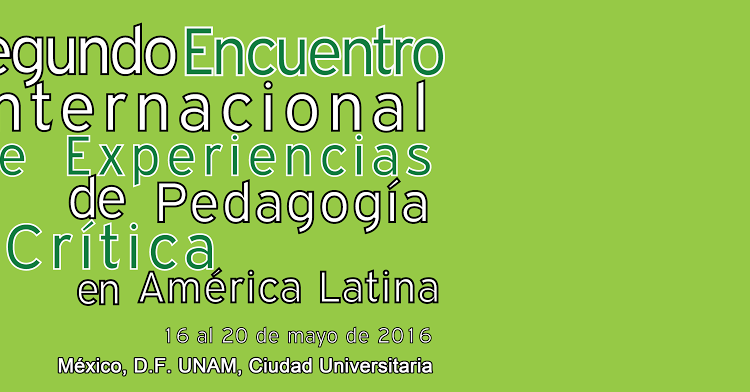
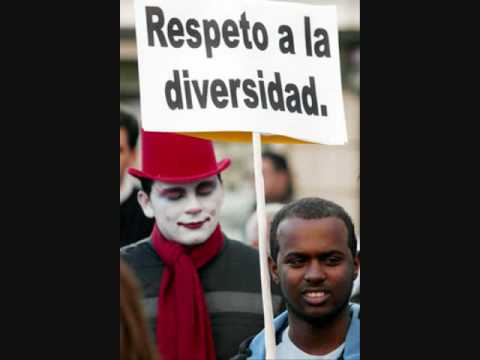

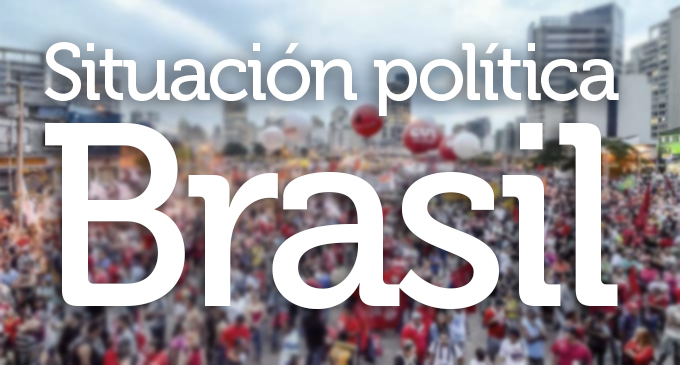
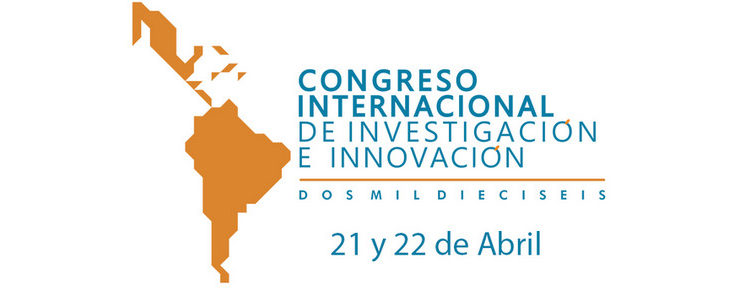
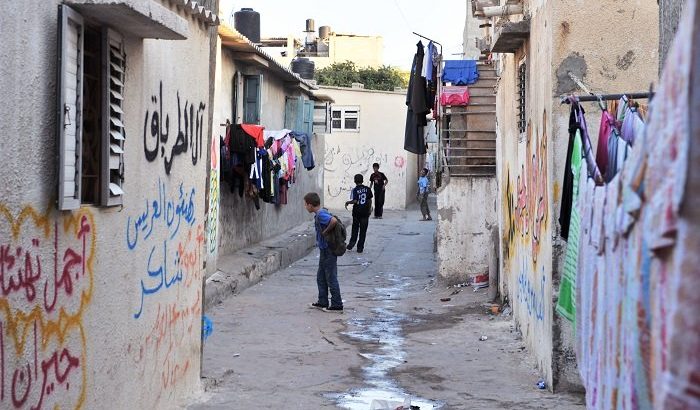
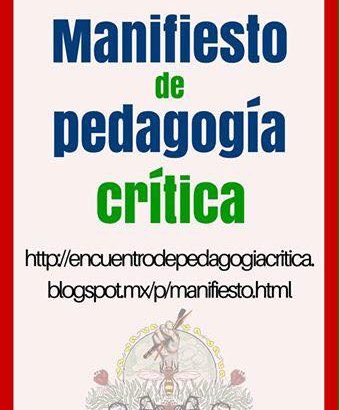







 Users Today : 6
Users Today : 6 Total Users : 35460785
Total Users : 35460785 Views Today : 10
Views Today : 10 Total views : 3419997
Total views : 3419997